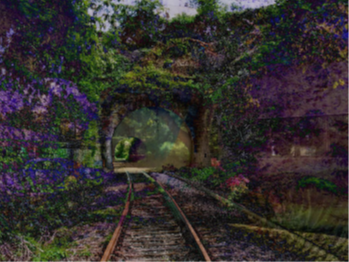As discussed in part 1 of this two-part series, generative artificial intelligence (AI) is a technology poised to disrupt how artwork is created, software is developed, and text is written. The technological advancements in this space are giving rise to questions about copyright protections of works produced by generative AI systems.
Can the output of a generative AI system be protected by copyright law? The use of AI in the creation of works is raising questions about the copyright eligibility of the output of these AI systems. In 2022, the Review Board of the United States Copyright Office considered a work of art entirely created by AI and decided not to grant copyright protection. The Board stated, "the Office will not register works 'produced by a machine or mere mechanical process' that operates 'without any creative input or intervention from a human author' because, under the statute, 'a work must be created by a human being.'" Citing U.S. Copyright Office, Compendium of U.S. Copyright Office Practices, § 313.2 (3d ed., 2021). This decision by the Board is being challenged in D.C. District Court in the case Stephen Thaler v. Shira Perlmutter and The United States Copyright Office, 1:22-cv-01564 (June 2, 2022). The AI-generated image at issue, A Recent Entrance to Paradise, is shown below.

Recently, the plaintiff, Dr. Thaler, filed a motion for summary judgment arguing a) that AI-generated works are copyrightable under the Copyright Act and b) that Dr. Thaler is the owner of the copyright in the work, either by common law property principles or, in the alternative, under the theory that ownership vested in him under the Work for Hire Doctrine.
The issue of whether works produced by generative AI systems are afforded copyright protection recently came to the forefront when artist Kris Kashtanova became the first person to register a copyright for an AI-assisted work, a comic book called Zarya of the Dawn. However, subsequent to granting copyright protection, the Copyright Office expressed concern over whether there was substantial human involvement in the process of creation of the comic book and has since initiated the cancellation of the work. Kashtanova's lawyer argued in a letter to the Copyright Office that the creative process of using generative AI is "essentially similar to the artistic process of photographer's selection of a subject, a time of day, and the angle and framing of an image." This action on behalf of the Copyright Office signals that artists may have to document their creative process when using generative AI tools. Specifically, filing works containing portions generated by artificial intelligence may require proof that there was a certain degree of human authorship before copyright protection is granted.
Laws regarding the copyright eligibility of AI-generated art are not uniform around the world. For example, the UK protects artwork generated completely by a computer and identifies the legal "author" of the computer-generated work as "the person by whom the arrangements necessary for the creation of the work are undertaken." The European Union is less clear, highlighting that what is "relevant under a copyright analysis is human creativity," but allows for that human creativity to be expressed through adjustment of the parameters of an AI system generating a work. European Commission, Trends and Developments in Artificial Intelligence Challenges to the Intellectual Property Rights Framework, p. 81 (2020). An AI-generated work "could qualify as a work protected under EU copyright law on condition that a human being initiated and conceived the work and subsequently redacted the AI-assisted output in a creative manner." Id. at p. 82.
There are minimal guiding principles when it comes to the copyright eligibility of works created by generative AI systems. In the United States, it appears there needs to be some human involvement, but the exact amount of human involvement is not defined. Elsewhere in the world, the degree of required human involvement varies.
The overall legal landscape for generative AI is still filled with many unanswered questions. We will be certain to follow new developments and provide updates as the picture becomes clearer.